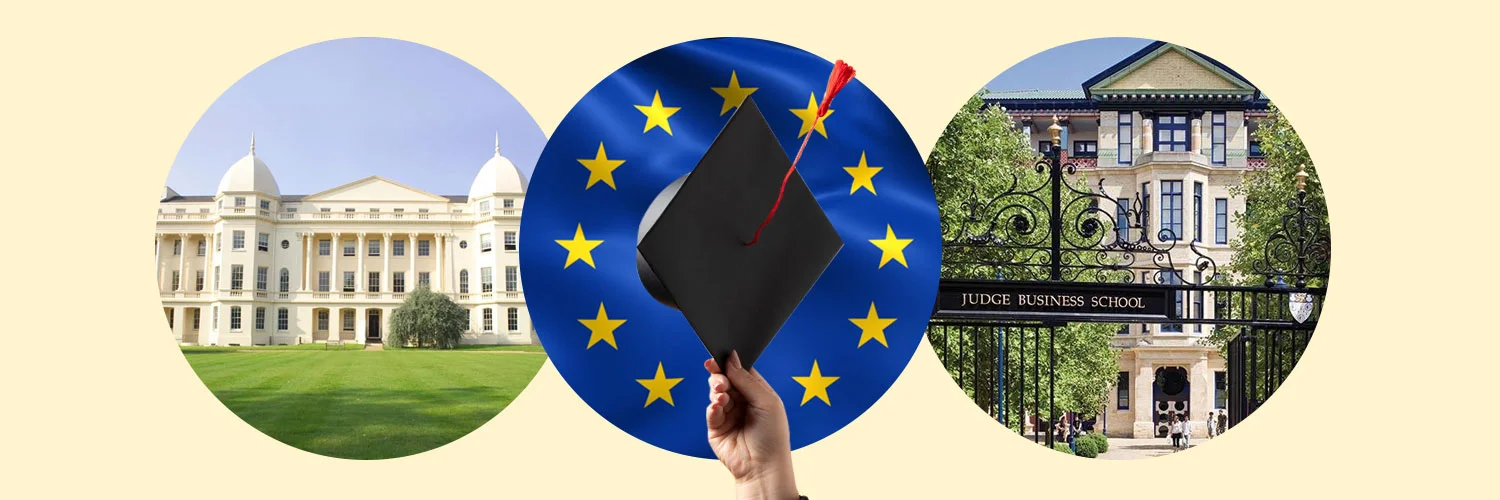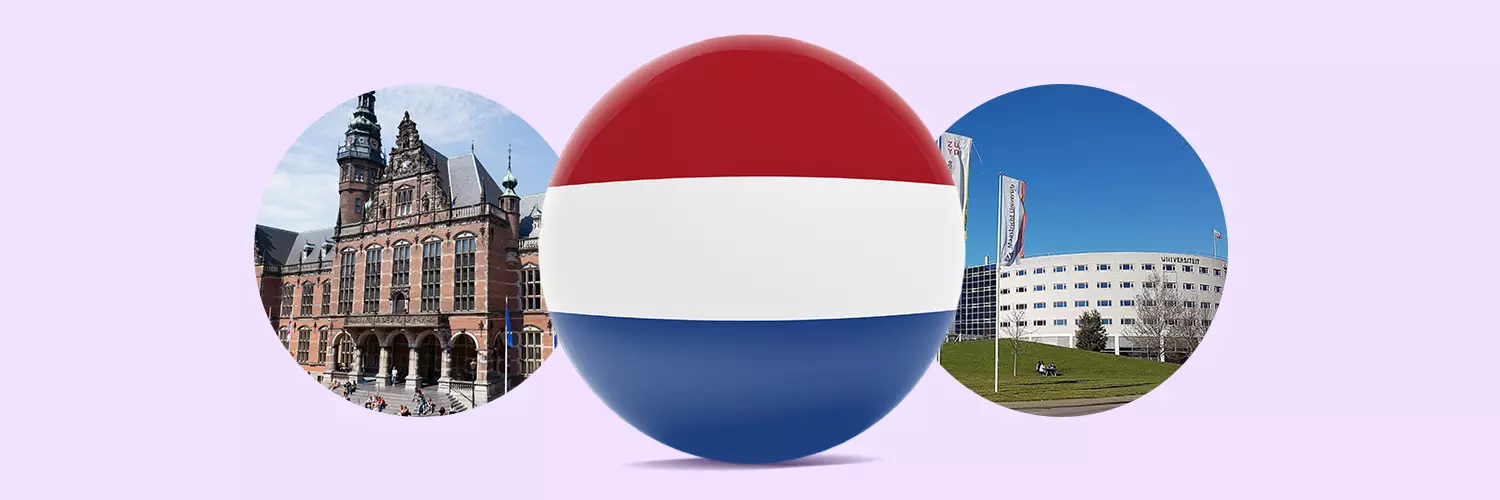
Top Universities in Germany for Indian Students
Top German Universities for Indian Students
This blog will serve as a map as you walk through famous German universities’ and get a degree in Germany.
Why Study in Germany?
These top German universities should be on your list. The German education system is a powerhouse known for its top-notch quality and cutting-edge innovation. Professors here are like mentors, blending theoretical knowledge with hands-on insights.
A degree in Germany also offers Indian international students several benefits. When it comes to affordability, you get a world-class education without breaking the bank. Moreover, there are plenty of scholarships. Whether it’s government-funded options or grants from universities and organisations, financial worries take a back seat.
Speaking German can help you win scholarships, land internships, and easily assimilate into German society. Adding German to your skill set can also help you land jobs in Germany and across Europe. You can polish your German language skills while you’re still in India by using websites like Duolingo and Rosetta Stone at your own pace.
So, why do Indians choose Germany? Exceptional education, budget-friendly choices, scholarship extravaganza, and a touch of German excellence – the perfect blend for your academic journey. Also, the government universities in
Top German Universities for Indian Students
From the technological forefront of Munich to the historic charm of Heidelberg and the bustling streets of Berlin, each famous German university possesses unique character and academic prowess. Here’s a closer look at what sets them apart:
1. Technische Universität München (TUM)
- TUM is renowned for its cutting-edge research and innovation in engineering and natural sciences. It has earned international recognition for its contributions to technological advancements.
- Situated in Munich, one of Germany’s most dynamic cities, TUM benefits from a rich cultural scene and a solid industrial network, fostering hands-on experiences for students.
- It operates numerous research centres and institutes, including the TUM Institute for Advanced Study and the TUM Entrepreneurship Research Institute. The university fosters innovation and entrepreneurship through initiatives like the UnternehmerTUM, Europe’s largest entrepreneurship centre.
- Notable Faculty: Professor Sami Haddadin, a robotics expert, has developed groundbreaking robotic systems for human-robot collaboration.
2. Ludwig Maximilian University of Munich (LMU Munich)
- As one of Europe’s oldest and most prestigious research universities, LMU Munich is a hub for intellectual exchange and academic excellence.
- Its diverse faculties and programs provide a comprehensive educational experience, attracting students worldwide, including India.
- The university’s commitment to interdisciplinary collaboration fuels groundbreaking research. LMU hosts several centres of excellence, including the Center for Advanced Studies.
- Notable Faculty: Professor Thomas Carell’s pioneering work in DNA chemistry has led to breakthroughs in DNA repair mechanisms.
3. Heidelberg University
- Nestled in the enchanting town of Heidelberg, this university offers a unique blend of history and modernity.
- Heidelberg’s picturesque surroundings inspire creativity and provide a tranquil setting for focused study.
- It’s famous for fostering a close student-teacher relationship and promoting a pleasant learning environment.
- Heidelberg’s Institute for Interdisciplinary Studies also promotes dialogue between different cultures and disciplines, fostering a global perspective.
- The Marsilius Kolleg encourages interdisciplinary research collaboration, bringing together scholars from diverse fields.
- Notable Faculty: Professor Jürgen Rühe’s contributions to nanotechnology have resulted in innovative applications in medical devices and diagnostics.
4. Freie Universität Berlin
- Situated in the southwestern region of bustling Berlin, Freie Universität offers a liberal and research-oriented education. It is known for its international outlook and commitment to promoting academic freedom.
- The university’s engagement with global issues and interdisciplinary research sets it apart. Freie Universität collaborates with over 100 partner universities worldwide, facilitating global academic exchange. The university’s Dahlem Humanities Center and Dahlem Research School promote interdisciplinary humanities and social sciences research.
- Notable Faculty: Professor Jutta Allmendinger’s research on education, labour markets, and social inequality has significantly impacted public policy.
5. Humboldt-Universität zu Berlin
- Humboldt-Universität, centrally located in Berlin, boasts a legacy of academic excellence and a history of producing Nobel laureates, contributing to its reputation for outstanding research.
- It strongly emphasises research-based learning and provides students access to world-class libraries and resources.
- Its central location fosters connections with governmental and cultural institutions. This institution promotes knowledge and technology transfer, bridging the gap between academia and industry.
- Notable Faculty: Professor Klaus Hasselmann’s oceanography and climate science research have earned him numerous prestigious awards.
Studying at elite German unis? Navigate euro transactions easily while you conquer academics!
Learn More Apply for Visa Now!Scan QR Code To Download The App

6. University of Göttingen
- The University of Göttingen has a strong tradition of scholarly pursuits and is remarkably esteemed for its contributions to mathematics and physics.
- Nestled in the cosy college town of Göttingen, the university promotes close interactions between students and professors, creating a close-knit academic community.
- The University of Göttingen operates research campuses focusing on neurosciences, biodiversity, and microbial communication. It engages in global research partnerships, enhancing its contribution to various scientific fields.
- Notable Faculty: Professor Reinhard Genzel’s work on galactic centres and black holes has earned him international recognition, including the Nobel Prize.
7. University of Freiburg
- Set against the stunning backdrop of the Black Forest, the University of Freiburg offers a serene and inspiring environment for learning. It is known for its excellence in the humanities and social sciences and its commitment to sustainability research.
- Freiburg’s emphasis on holistic education nurtures well-rounded individuals.
- Its excellence in sustainability research is evident through initiatives like the Freiburg Institute for Advanced Studies’ Sustainable Society Program.
- The university has interdisciplinary research clusters, such as the Cluster of Excellence, “Living, Adaptive, and Energy-autonomous Materials Systems.”
- Notable Faculty: Prof. Dr. Katharina von Koppenfels-Spies prioritises research regarding Social, Employment, Civil and Private Insurance Law.
8. University of Mannheim
- Located in the heart of Mannheim, this university is highly regarded for its focus on business administration, economics, and social sciences. Its integration of theory and practice prepares students for successful careers.
- The city’s vibrant business community provides ample networking opportunities. The university has strong ties with the business world, providing students with internships, projects, and collaboration opportunities.
- Mannheim’s innovative business simulation lab allows students to apply theoretical knowledge to practical business scenarios.
- Notable Faculty: Professor Michael Woywode’s research in marketing and consumer behaviour has earned him recognition as a leading scholar in his field.
9. RWTH Aachen University
- RWTH Aachen is an engineering and technology education leader. Its close collaboration with industry partners and research institutions fosters real-world applications of knowledge, facilitating research-driven solutions and technology transfer.
- The university’s strategic location at the crossroads of Europe contributes to a diverse and international student body.
- It is also involved in several research associations for interdisciplinary collaboration, such as the JARA (Jülich Aachen Research Alliance).
- Notable Faculty: Professor Dierk Raabe’s contributions to materials science have led to materials design and processing advancements.
10. University of Stuttgart
- Positioned in the dynamic city of Stuttgart, this university is a driving force in engineering, technology, and natural sciences. Its state-of-the-art facilities and research centres enable students to engage in cutting-edge projects.
- The university’s strong industry ties facilitate internships and career opportunities.
- It is recognised as a ‘University of Excellence’ for its strong focus on cutting-edge research and innovation.
- Stuttgart’s Technology Transfer Center supports the practical application of research findings and fosters entrepreneurship.
- Notable Faculty: Professor Anke Kahl’s research in computer graphics has contributed to advancements in visualisation techniques and computer-generated imagery.
Each of these top German universities offers a distinct academic experience shaped by its location, historical significance, and areas of expertise. Whether it’s innovative research, historical charm, or focus on specific disciplines, these institutions cater to every student’s diverse academic interests and aspirations.
Learn more about the best colleges for MBA from Germany for Indian students!
![]()
In a Nutshell
Some of the top German universities for Indian students are:
Technische Universität München (TUM): Notable faculty include Professor Sami Haddadin, a robotics expert. He has developed robotic systems to improve and accelerate human-robot collaboration.
Ludwig Maximilian University of Munich (LMU Munich): Notable faculty include Professor Thomas Carell’s. He has done pioneering work in DNA chemistry and repair mechanisms.
Heidelberg University: Notable faculty include Professor Jürgen Rühe’s. He has contributed to nanotechnology, resulting in the development of innovative medical devices and diagnostics.
Freie Universität Berlin: Notable faculty include Professor Jutta Allmendinger. Her research on education, labour markets, and social inequality has significantly impacted public policy.
Humboldt-Universität zu Berlin: Notable faculty include Professor Klaus Hasselmann. His work on oceanography and climate science research have earned him numerous prestigious awards.
University of Göttingen: Notable faculty include Nobel prize winner Professor Reinhard Genzel for his research on galactic centres and black holes.
University of Freiburg: The university has contributed towards sustainability research and interdisciplinary research cultures.
University of Mannheim: Notable faculty include Professor Michael Woywode. His research in marketing and consumer behaviour has earned him recognition.
RWTH Aachen University: The university is involved in several research associations for interdisciplinary collaboration, such as the JARA (Jülich Aachen Research Alliance).
University of Stuttgart: This university is recognised as a ‘University of Excellence’ and has strong industry ties that facilitate student internships and career opportunities.
Specialised Institutions in Germany
Let’s explore three distinctive types of institutions that play a pivotal role in shaping the country’s academic and technological landscape: Max Planck Institutes, Fraunhofer Society Institutes, and German Universities of Applied Sciences (Fachhochschulen). Each institution brings a unique flavour to education, research, and innovation, catering to diverse interests and career aspirations.
Max Planck Institutes
Max Planck Institutes are eminent research institutions scattered across Germany, dedicated to advancing various fields of science and knowledge. Named after the German physicist Max Planck, these institutes are hotbeds of innovation and discovery. They cover various disciplines, from physics, chemistry, biology, social sciences, and humanities. With a strong emphasis on interdisciplinary collaboration, Max Planck Institutes often attract top-notch researchers and scholars from around the globe. Their cutting-edge research and state-of-the-art facilities make them one of the top-ranked German universities and one of the best universities in Germany for international students and Indians.
Fraunhofer Society Institutes
The Fraunhofer Society is a network of applied research institutes, each specialising in different technology and engineering fields. These institutes are like dynamic hubs where scientific excellence meets practical application. They work closely with industries to address real-world challenges and develop solutions that can drive technological advancements. The Fraunhofer Institutes have earned a stellar reputation for fostering innovation, providing consultancy, and supporting the development of market-ready technologies. Their close ties to the industry ensure that the research conducted here is not confined to academia but translates into tangible products and services, making them the best colleges in Germany.
German Universities of Applied Sciences (Fachhochschulen)
German Universities of Applied Sciences, commonly known as Fachhochschulen, offer a distinctive approach to higher education. These institutions focus on practical, hands-on learning, bridging the gap between academia and the job market. With strong ties to industries, Fachhochschulen provides students with industry-relevant skills and knowledge. The curriculum often includes internships, cooperative projects, and real-world case studies, ensuring graduates are well-prepared to hit the ground running in their chosen professions. The emphasis on application-oriented education makes Fachhochschulen a popular choice for students seeking a direct path to their desired careers.
Read more about Germany student visa requirements from India if you plan on studying there.
![]()
In a Nutshell
- Max Planck Institutes: They cover various disciplines, from physics, chemistry, biology, social sciences, and humanities.
- Fraunhofer Society Institutes: They work closely with industries to address real-world challenges and develop solutions that can drive technological advancements.
- German Universities of Applied Sciences: Commonly known as Fachhochschulen, offer a distinctive approach to higher education. These institutions focus on practical, hands-on learning, bridging the gap between academia and the job market.
Best Universities in Germany for International Students: Student Life in Germany
Student life in the top German universities is a fantastic blend of academics and exploration. German culture is a treasure trove of historical wonders and contemporary art scenes, providing a diverse experience for Indian students. When you’re not busy studying, you can immerse yourself in Germany’s football fervour – whether you’re cheering at a Bundesliga match or playing with local teams, there’s no shortage of excitement.
Plenty of accommodation options include dormitories, shared apartments, and private rentals. And regarding expenses, Germany keeps it student-friendly – your budget will thank you. Remember that the cost of living in Germany for Indian students might differ from the locals.
Enjoy your student life in a foreign country without worrying about forex!
Go Forex-free Go Forex-free
Scholarships and Financial Aid
Scholarships and financial aid are essential for students eyeing top German universities for higher education. There are a bunch of Germany scholarships for international students, both government-funded and through private foundations.
- Diverse Scholarship Options: Germany offers a variety of scholarships for international students, such as DAAD Scholarships and Research Grants, covering a wide range of academic fields. DAAD Germany scholarships sponsor 100,000 German and international students and researchers a year!
- Government-Funded Opportunities: The Deutschlandstipendium stands out, providing financial support regardless of nationality or field of study. EU students can also explore [Erasmus+ Program grants](https://erasmus-plus.ec.europa.eu/opportunities/opportunities-for-individuals/students/studying-abroad
:~:text=You%20may%20receive%20an%20Erasmus%2B,the%20availability%20of%20other%20grants.) for studying abroad.
- Private Foundation Support: Foundations like Heinrich Böll and Konrad-Adenauer-Stiftung offer specialised funding based on academic pursuits and personal background.
When applying, remember to read the eligibility criteria for each scholarship thoroughly. Highlight your academic achievements, community involvement, and future goals. Strong recommendation letters and a well-crafted statement of purpose can seal the deal.
So, whether you’re a science geek or an art enthusiast, there might be a scholarship in a top German university with your name on it. Get cracking on those applications and secure your ticket to a world-class education!
Join the conversation and learn how to find scholarships you may be eligible for with Niyo Community!
Key Takeaways
Let’s take a moment to revisit the fantastic advantages that come with choosing Germany as your higher education destination. The journey of studying in Germany is like an enriching adventure, brimming with opportunities to expand your horizons both academically and culturally.
It’s worth noting that Germany’s immigration policies post-graduation offer a favourable landscape for international students.
With an average stay extended, you have ample time to explore career prospects and contribute to the global workforce.
The blend of academic excellence, cultural immersion, and personal growth is an experience that lasts a lifetime. So, as you set forth on this exhilarating path, we wish you every success and fulfilment on your educational adventure in Germany.
Frequently Asked Questions
1. What are the admission requirements for international students?
You typically need a recognised high school diploma or equivalent to study at a top German university. Universities may have specific requirements for certain programs, so checking their websites is essential. Proficiency in English or German is often necessary; you might need to submit language test scores like IELTS or TestDaF.
2. Are scholarships available to international students?
Yes, Germany offers various scholarships for private universities based on academic merit, subject of study, and financial need. Government Universities generally do not have any tuition fees. DAAD (German Academic Exchange Service) is a primary source for scholarships. Check with your chosen university for specific scholarship opportunities.
3. How much does it cost to study in Germany, including tuition fees and living expenses?
Tuition fees are relatively low or even non-existent at public universities in Germany. However, the cost of living in Germany for Indian students, including accommodation, food, transportation, and health insurance, could be around €800-1,000 per month.
4. Can I work while studying in Germany to support myself financially?
Yes, as an international student, you can work part-time for up to 120 full days or 240 half days per year. This can help you cover living expenses, gain experience, and immerse yourself in the local culture.
5. How do I apply for a student visa and residence permit?
After university admission, visit your home country’s German embassy or consulate in your home country. You must provide various documents, including proof of financial means, health insurance, and a valid passport. Once in Germany, you can apply for a residence permit at the local Alien Registration Office (Ausländerbehörde). Remember to start the visa process well in advance.







